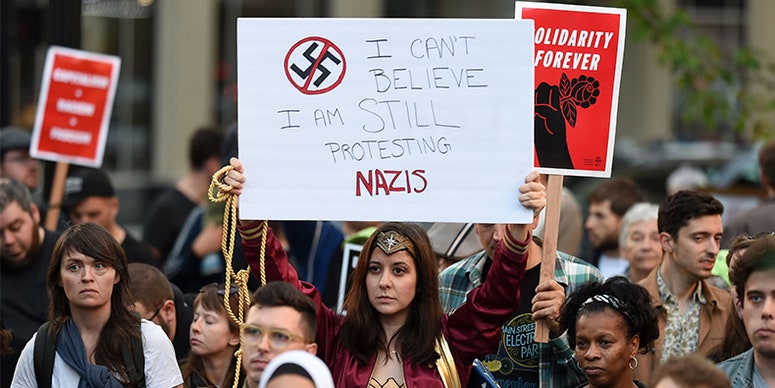This past February, Spotify was found to be hosting—and in some cases actively playlisting—an array of white supremacist music. Those findings, by the Anti-Defamation League’s Center on Extremism, were not adequately heeded by the platform, according to a follow-up report published last week and picked up by Billboard.
In a blog titled “White Supremacist Music Prevalent on Spotify, While Platform Largely Declines to Act,” the ADL found 40 white supremacist artists on the streaming service, many searchable through catch-all genre terms such as “fashwave” and “RAC” (the misleadingly named Rock Against Communism). Many of those artists have verified status—a process any artist can sign up for. Some songs have been corralled in Spotify’s own algorithm-based playlists. As a result, a black metal listener could unwittingly be recommended music from white supremacist subgenres such as NSBM (national socialist black metal), in an official Spotify Mix or artist radio station. Some of these artists include links to other extremist spaces in their profiles, according to the report.
Spotify users have also created abundant playlists signposted with far-right terminology, often using neo-Nazi imagery for the cover art. Despite contravening the anti-extremist guidelines in Spotify’s content policy, such content has flourished on the platform, according to the report. Since its publication, Spotify has removed some of the artists in question.
After the February report, Spotify added what it called “a much more explicit anti-extremism policy,” but the ADL says it was not strictly enforced. Users wishing to flag extremist content can do so only on the Spotify desktop app, though Spotify says it will add a reporting method to the mobile app.
In a statement to Billboard, a Spotify spokesperson said the company “takes content concerns very seriously” and uses both “algorithmic and human detection measures” to monitor content. They also claimed Spotify had removed 12,000 podcast episodes, 19,000 playlists, 160 songs, and “nearly 20” albums that violated Spotify’s policies against hate content.

